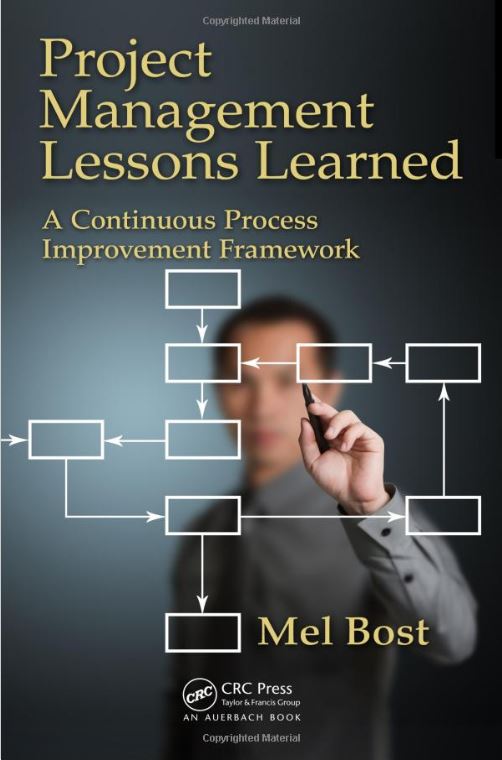Last week’s episode of Parenthood on NBC had a number of dimensions. I would like to review, from my perspective, what happened in this episode, and then draw some conclusions for the project community followers of this blog.
In this episode, one of the main characters, Adam Braverman is faced with a number of issues. He is the father of a teenage daughter and a grade school son and his wife is about to give birth to another child. He has recently lost his job, and is evaluating several possible jobs, each of which are really at a lower level than his previous position.
Here are the issues he is faced with in this episode:
1. His son has a learning disability which causes him to speak out in class inappropriately.
2. His daughter is dating a gentleman (Alex) who has a criminal background, and is now being charged with assault and battery by the parents of another teen whom Alex fought with at a recent party.
3. His brother is seeking to get a lease on an old recording studio in hopes of reviving the studio. He has used Adam’s background information—without Adam’s knowledge—to secure a position to bid on the recording studio space.
4. He has no traditional job or income at present.
5. His wife is about to give birth, and there is a possibility that the baby could also have the same learning disorder that their son experiences.
Now, we all talk a lot about rational decision making being the basis for business interactions and business contracts.
Adam thinks that the “rational” choice is for him to accept a job that provides an income, but not a fulfilling experience. He also knows that there is very little he can do about the assault and battery charge against his daughter’s boyfriend, but, in his mind, it’s just another indication that their relationship was a mistake from the beginning.
So, what decisions does Adam make in this episode?
First, when Adam and his brother meet with the landlord of the recording studio building, they are initially met with rejection because the landlord says that he wants a safe and reliable tenant that he can count on. At the heart of this conversation, Adam takes over the dialogue, and tells the landlord that he believes in what his brother is doing. What’s more, he tells the landlord that he has business skills that he has not tried out in this context before, but which could be exactly what the new startup recording studio needed. In doing so, Adam surprises both the brother and the landlord.
Second, when Adam’s daughter tells him that she feels really powerless because she can’t help her boyfriend with the charges leveled against him, Adam tells his daughter that everything will work out. He then goes to the parents of the assaulted teenager and speaks to them from the heart about how he first doubted Alex, but was impressed when he learned how Alex had moved from using a soup kitchen as a source of food, to actually running the soup kitchen. Adam’s eloquence in this dialogue resulted in the parents dropping the assault charges leveled against Alex.
Now, was this irrational decision-making? At first glance, it appeared to be just that….in the face of harsh facts that pointed in one direction, he reversed his field and stood up for his brother and for Alex.
Meanwhile, the side story about Adam’s son’s learning disability, and his inability to get along with the other kids in the class, developed into an asset. When the kids in the class found out that Adam’s son had advanced to a high level in their favorite video game and knew how to beat a major obstacle, the kids sought him out as an “authority” that could help them achieve the same success with the game. His “influence” with the classmates increased. Seizing upon this success, Adam’s wife and the teacher developed a strategy for Adam’s son that they hope will result in him getting along better with his classmates.
At the end of the episode, Adam is still faced with no income, and an uncertain position in his brother’s recording studio venture. He feels, however, that he “did the right thing.”
The real story here is how reframing the issues provided Adam with a greater ability to make difficult decisions. Until faced with a decision, Adam had not focused on his own skills and competencies to see how they might apply to his brother’s recording studio venture. Adam was uncertain about how to proceed with Alex until they learned more about his past, and how his drive to succeed and survive led him to run the soup kitchen.
Reframing is a very important tool in project management and in life. It is why I tell my Project Lessons Learned students to get as many perspectives as possible when describing a “Significant Event” that may eventually become a “Candidate” for a Lesson Learned—”People act in accordance with the truth as they perceive it to be.” Everyone sees different outcomes from the same scenario.
In this episode of Parenthood, Adam reframed the issues, and acted at the right time, with the right intent, and with the right IMPACT to make a difference.
Every project manager and every PMO leader is, at some point, faced with a difficult decision. It is our job to face the facts, reframe if necessary, move toward action, speak with conviction, and lead by leading.

Leave a Reply